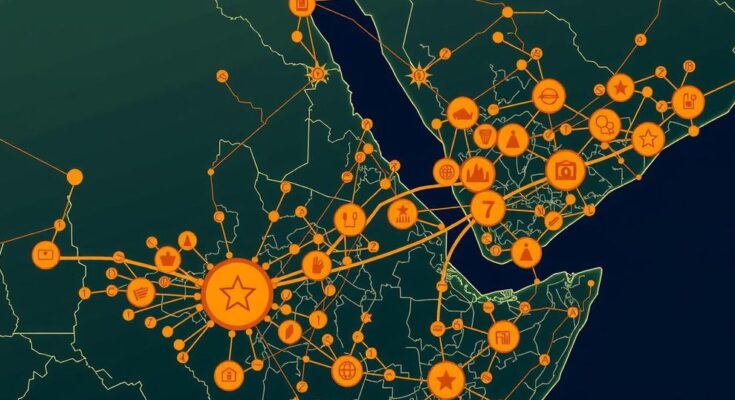Ethiopia has extended a $738 million loan to South Sudan to construct a 220-kilometer cross-border road. The road will connect South Sudan’s regions of Paloich, Maiwut, and Pagak with Ethiopian border areas. Repayment will be managed through crude oil sales. This initiative not only enhances bilateral relations but also reflects a commitment to resource-backed financing and economic growth.
Ethiopia is significantly advancing its diplomatic and infrastructural collaboration with South Sudan by providing a loan of $738 million to support the building of a 220-kilometer road. This crucial infrastructure will connect key regions within South Sudan—specifically Paloich, Maiwut, and Pagak—to Ethiopia’s border areas. The agreement embodies a commitment made by both nations in May 2024 and aims to enhance cross-border trade and relations by ensuring seamless connectivity between the two countries. Ethiopian contractors are tasked with executing the project, while the repayment terms of the loan are structured to be managed through the sales of South Sudanese crude oil to Ethiopia, mitigating financial risks for the borrower. The loan features a four-year grace period followed by a ten-year repayment schedule, presenting South Sudan with an economically viable route for growth and development through resource-backed financing. This project symbolizes not only infrastructural progress but also reflects Ethiopia and South Sudan’s desire to foster robust financial diplomacy. It aims to lay the groundwork for stronger bilateral relations through joint economic initiatives, setting a precedent for similar undertakings across the African continent. The strategic partnership is expected to provide long-term benefits, not just economically but also in terms of enhancing collaborative governance between the two nations. By engaging in such cooperative efforts, Ethiopia positions itself as a leader in regional infrastructure development, while South Sudan endeavors to establish a solid foundation for its economic progress. In conclusion, this initiative is a significant step for both Ethiopia and South Sudan, representing a convergence of diplomatic, economic, and infrastructural objectives. The cross-border road will likely boost commerce, improve logistics, and further integrate the economies of the neighboring countries, thus enriching their mutual growth and stability. This partnership sets an exemplary model for future resource-driven collaborations in the region as well.
The impetus behind Ethiopia’s loan to South Sudan stems from a mutual agreement established in May 2024 to promote infrastructural development and financial collaboration. This agreement underscores the growing ties between these two neighboring countries, especially in light of South Sudan’s relatively recent emergence as an independent state. The construction of a road that spans 220 kilometers would not only facilitate trade and movement but also symbolize a vital connection between the two nations, paving the way for enhanced diplomatic relations and regional integration.
In summary, Ethiopia’s $738 million loan to South Sudan for the construction of a 220-kilometer road signifies a major investment in the future economic cooperation between the two nations. The project is expected to enhance connectivity, foster goodwill, and serve as a model for infrastructure investments backed by resources, thereby laying the groundwork for sustainable development in Africa. This initiative is a clear illustration of how diplomatic and economic strategies can align to support concrete regional advancements.
Original Source: africa.businessinsider.com




